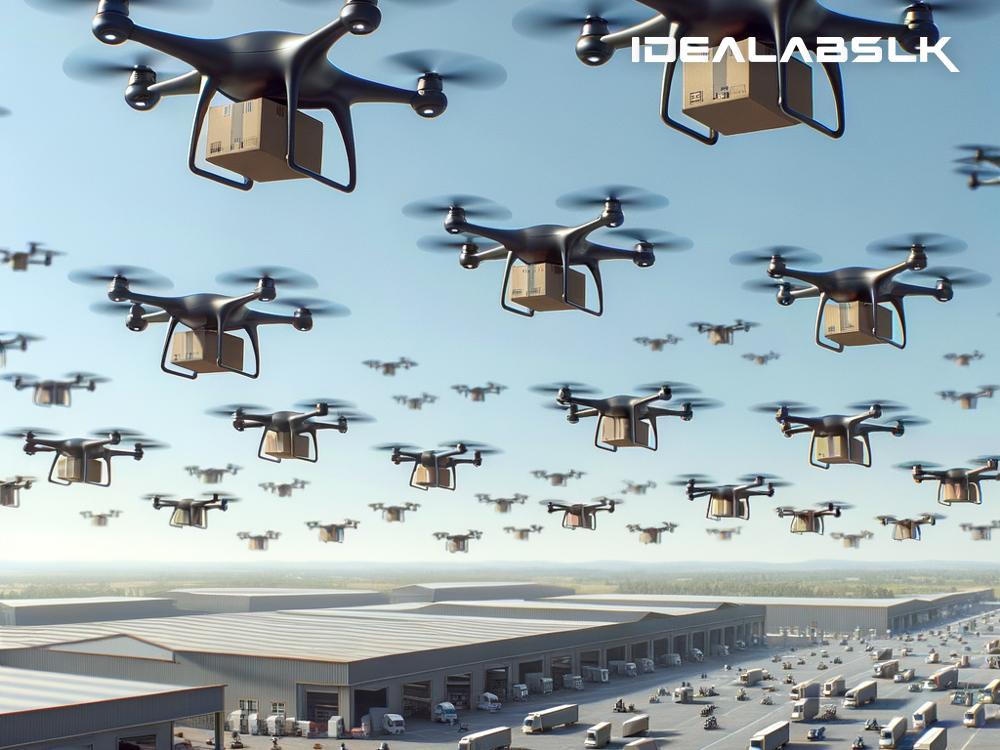Title: How Autonomous Drones Are Changing the Game in Logistics
In the fast-paced world of delivery and logistics, businesses are always on the lookout for ways to get packages from point A to point B faster, cheaper, and more efficiently. Enter autonomous drones – these small, but mighty machines are revolutionizing the way we think about shipping and delivery. Let's unpack how these flying marvels work and why they're set to dramatically change the logistics landscape.
What Are Autonomous Drones?
Autonomous drones are essentially flying robots that can navigate without human control, or beyond the line of sight of operators. They're equipped with high-tech sensors and GPS technology, enabling them to understand and interact with their environment safely. Imagine a bird that knows exactly where to go, can avoid obstacles, and doesn't get tired – that's pretty much what an autonomous drone is!
How Do They Work in Logistics?
The magic of autonomous drones in the logistics world lies in their ability to swiftly move goods across a variety of distances without the need for traditional ground transportation. Here’s how they're starting to make an impact:
-
Last-Mile Delivery: This refers to the final step of the delivery process, where a package goes from a distribution center to the customer's doorstep. Drones can significantly speed up this process, delivering packages directly to customers' homes in a fraction of the time it would take a delivery truck, especially in congested urban areas or remote locations.
-
Warehouse Management: Inside warehouses, drones are being used to track inventory, scan barcodes, and even move small items. They can zip around the large spaces much faster than humans or ground-based robots, making stock-taking and item retrieval more efficient.
-
Transporting Goods: On larger scales, drones are being tested to transport goods between warehouses, or to locations that are difficult to reach via traditional transport methods. This could mean flying over a mountain range or across a body of water, potentially opening up new routes and reducing dependency on established transport networks.
Why Are They a Big Deal?
The benefits of using autonomous drones in logistics are pretty compelling. Here are a few reasons why they're being hailed as a game-changer:
- Speed: Drones can travel as the crow flies, meaning they don't have to deal with road traffic, leading to faster delivery times.
- Cost-Effectiveness: While there's an initial investment in drone technology, over time, they can reduce the costs associated with fuel, vehicle maintenance, and human labor.
- Environmental Impact: Drones, especially those powered by electric batteries, have a smaller carbon footprint compared to diesel or petrol delivery trucks.
- Accessibility: Drones make it easier to deliver to hard-to-reach places, ensuring that even those in remote areas can receive goods quickly.
Challenges and Limitations
Despite their potential, autonomous drones in logistics aren't without their challenges. Regulatory hurdles are a significant barrier, as governments and aviation authorities need to create frameworks that allow drones to operate safely alongside traditional aircraft and in populated areas. There's also the issue of battery life and payload capacity – currently, drones can only carry small packages over relatively short distances before needing a recharge.
Weather is another consideration; drones can be sensitive to strong winds, rain, or extreme temperatures, which could limit their operability. And, of course, there's the matter of public acceptance, with concerns around privacy, safety, and noise needing to be addressed.
Looking to the Future
Despite these hurdles, the potential benefits of integrating autonomous drones into logistics networks are too significant to ignore. Companies like Amazon and UPS are already experimenting with drone delivery services, and as technology advances, we're likely to see drones becoming a common part of the logistics landscape.
The future of logistics with autonomous drones seems poised to offer faster, more efficient, and more sustainable delivery options, transforming not just how goods are transported but also how businesses operate and how customers interact with brands. As we continue to innovate and tackle the challenges head-on, the sky's the limit for autonomous drones in logistics.

